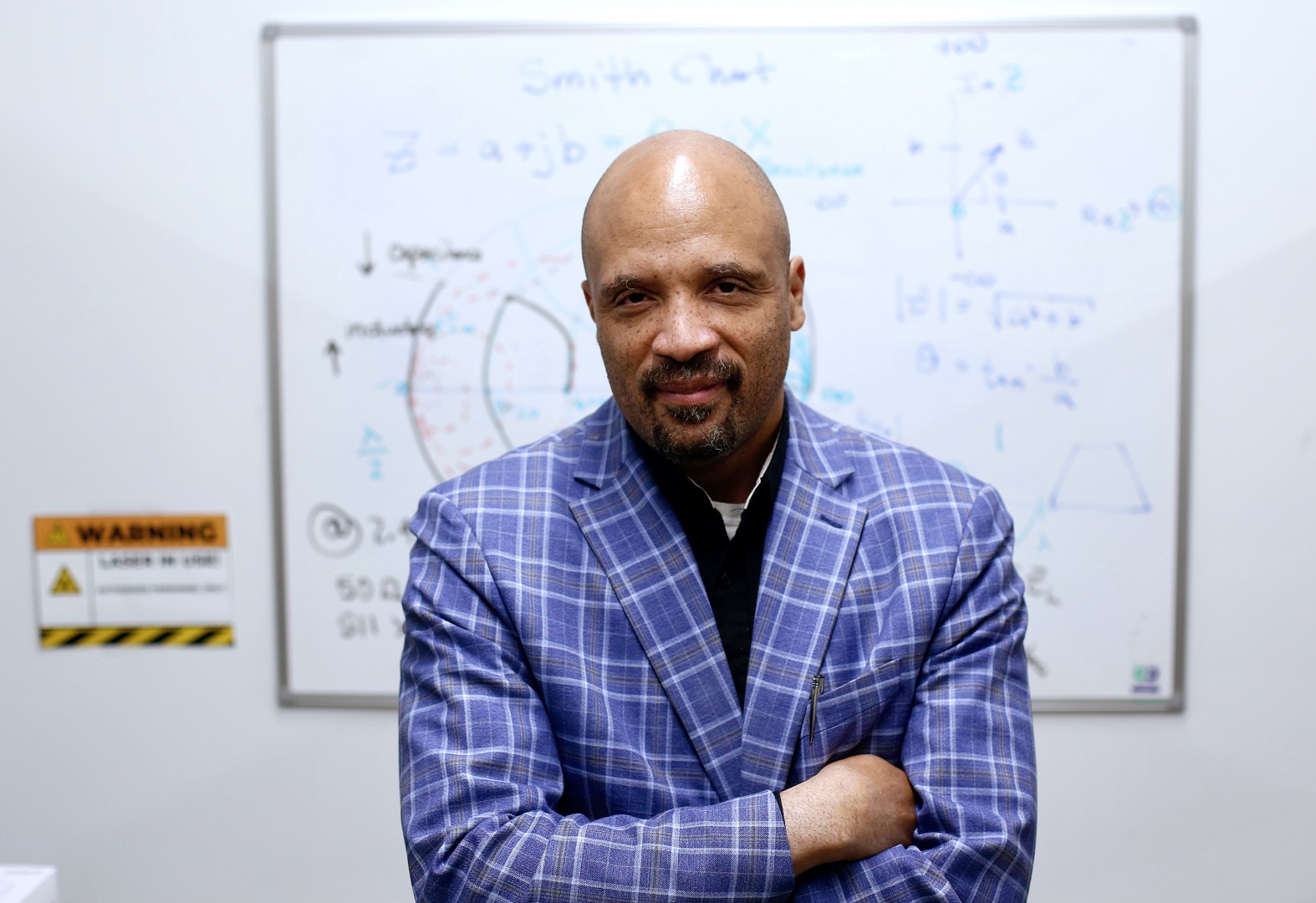UHV Provost’s spacetime distortion technology receives grant

University of Houston-Victoria Provost Chance Glenn’s research, often described as “science fiction,” has recently received funding from the National Science Foundation, marking a milestone in his pursuit of intergalactic space travel.
Glenn’s technology development company, Morningbird Media Corporation, will receive $272,800 in funding through the Small Business Innovation Research Phase I contract to support one year of his company’s research and development efforts. The proposal for his research began when he sent a proposal to the foundation in February of this year. After an evaluation process, the proposal was accepted with the contract commencing on Sept. 1.
“I was elated,” Glenn said. “It was the validation that we were on the right track.”
His contract titled, “A Fully Electrical Space Vehicle Propulsion Engine,” will explore the development of Experimental Spacetime technology, a concept with the potential to propel an object through space in a short amount of time.
“We’re essentially trying to create a warp drive,” Glenn said. “We’re trying to bend the fabric of space and time in order to move around, and hopefully one day to move at speeds far exceeding the speed of light.”
The award will allow Glenn to build a team, which already includes a UHV student, to assist him as they work on different aspects of the project inside a laboratory in UHV University South. The team is already working on a preliminary experiment, Glenn said.
The basis of spacetime distortion can be understood through something most people do every day. For most people, when they are inside a car and want to drive down the road, they will begin to press on the gas, Glenn said. When the gas is pressed, inertia throws your body back a little bit, and the car begins to accelerate, he said.
“Suppose all the road and land around you were moving, not the car,” Glenn said. “You wouldn’t feel the inertia; suppose that you could move the things around you to get where you want to go, instead of moving yourself.”
Central to his research is the development of a metric – a set of equations – that could make this concept a reality. One breakthrough Glenn has achieved is finding a way to convert the negative energy requirements initially associated with this theory into positive energy, making it a more feasible endeavor. This discovery has the potential to revolutionize space travel and exploration, he said.
“I want to show that you could one: artificially distort spacetime in a lab right now,” Glenn said. “The next thing to show is that we could actually move things around with it.”
In addition to his scientific pursuits, Glenn has molded himself to be a multifaceted individual. He played basketball, took on painting and drawing, wrote songs and later in life he created his own label and was a Grammy-nominated artist through one of his albums.
“I’ve been trying to figure out who I am for the past 57 years,” Glenn said. “I’m driven to create, I always wanted to create; that’s why I do all these different things.”
He remembers growing up with his eyes glued to the television set watching reruns of the original Star Trek. He recalled making friends with other students in his class who were also interested in Star Trek. With his newfound friends, Glenn said he and his group would make homemade gadgets they saw on the show, crafted wooden ships and dressed up as their favorite characters. Spock, a fictional character that cruised space onboard the USS Enterprise, would remain his favorite character to this day, Glenn said.
“I know it’s idealistic, but I look at that Star Trek-type future to say that’s where I would love to see us. To be sailing amongst the stars, seeing new things and to expand ourselves out to space,” Glenn said. “But I also want to see us taking care of this planet. There are a lot of different things we could do that could make our home a better place for everyone.”
The University of Houston-Victoria, located in the heart of the Coastal Bend region since 1973 in Victoria, Texas, offers courses leading to more than 50 academic programs in the schools of Arts & Sciences; Business Administration; and Education, Health Professions & Human Development. UHV provides face-to-face classes at its Victoria campus, as well as an instructional site in Katy, Texas, and online classes that students can take from anywhere. UHV supports the American Association of State Colleges and Universities Opportunities for All initiative to increase awareness about state colleges and universities and the important role they have in providing a high-quality and accessible education to an increasingly diverse student population, as well as contributing to regional and state economic development.
